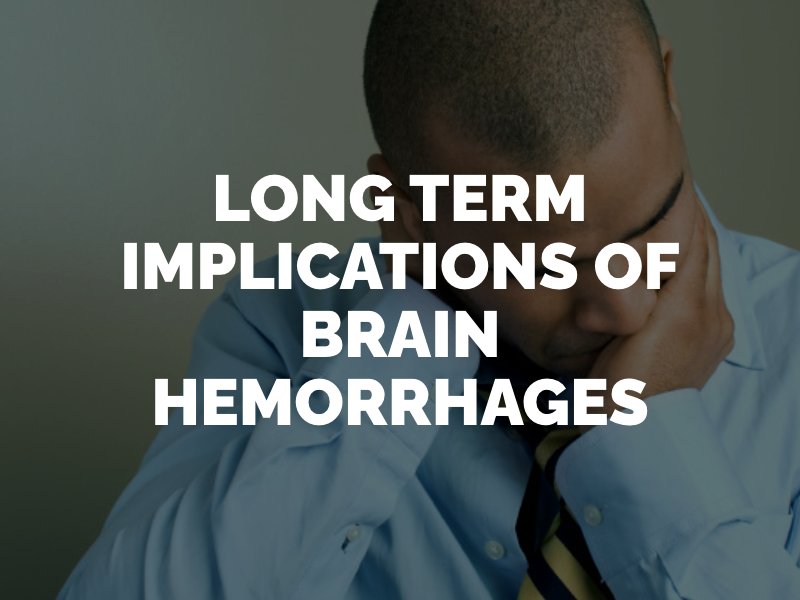Long-Term Effects of Brain Hemorrhages
A brain hemorrhage refers to bleeding in the brain, or a type of stroke that occurs when an artery or blood vessel bursts in the brain. Brain hemorrhages can occur due to a traumatic brain injury, such as a concussion or penetrating injury. Brain hemorrhages are extremely serious and can be fatal. Patients may struggle with many long-term effects and complications following a brain hemorrhage.

Brain Damage or Cognitive Impairment
Brain hemorrhages can cause long-lasting or permanent brain damage. A severe intracranial bleed or hematoma (bruising or the pooling of blood) can cause a buildup of pressure between the brain and skull. If this pressure is not relieved by medical intervention in a timely manner, it can cause permanent brain damage.
Long-term cognitive effects of a brain hemorrhage can include:
- Memory loss
- Trouble concentrating
- Slowed down cognition or “brain fog”
- Difficulty learning new information
- Trouble communicating
- Mood and behavioral changes
Not all patients who suffer brain hemorrhages will experience lasting damage to the brain’s cells or tissues as a result. Whether a brain hemorrhage will cause lingering or long-lasting effects will depend on factors such as the severity of the bleed, the location of the brain injury and how soon the victim receives medical attention.
Blood Vessel Complications
A blood vessel or artery that has hemorrhaged once can be at risk of bursting again after it has healed itself. This is known as rebleeding, and it is most likely to occur in the first few days after the initial brain hemorrhage. Rebleeding comes with a high risk of death or permanent disability.
Another potential blood vessel complication is a spasm that causes the vessel to narrow, known as vasospasm. A vasospasm can diminish the level of blood that reaches the brain to a dangerously low level, potentially inflicting brain damage.
Chronic Headaches
A brain hemorrhage or stroke could lead to chronic headaches that resist treatment or medication, especially if the brain suffered any residual damage or inflammation. In some cases, these headaches are severe to the level of disabling. Severe headaches can cause concurrent symptoms such as blurred vision, sensitivity to light and sound, and nausea.
Epilepsy
Some patients may develop seizures or seizure disorders such as epilepsy as a result of a brain hemorrhage. This is more common if there is residual scar tissue or other brain tissue damage from the hemorrhage. Epilepsy is an interruption of the normal functioning of the brain, resulting in repeated seizures. Seizures may last up to several minutes before the brain resumes its normal activity.
Emotional Disorders
Brain hemorrhages and other brain injuries are unique in that they do not only inflict physical symptoms. A brain hemorrhage can also cause ongoing emotional disorders and mental health conditions. Examples include depression, anxiety disorders and post-traumatic stress disorder. A victim may also notice changes in mood, behavior or personality. The complex nature of these injuries can make it difficult to recover compensation. Getting the help from a qualified Ventura brain injury attorney is highly recommended for retrieving fair compensation.
If you suffered a brain hemorrhage after an accident in California, contact Rose, Klein & Marias, LLP about a potential Ventura personal injury claim. You may be entitled to financial compensation for the long-term effects you have or will suffer due to the brain injury.
